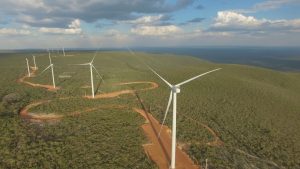Brazil has been at the forefront of international climate negotiations, advocating for the preservation of the Amazon rainforest and pushing for sustainable development goals. The Amazon, often referred to as the “lungs of the Earth,” plays a critical role in global climate regulation. In international forums, Brazil has consistently emphasized the importance of protecting this
Brazil has been at the forefront of international climate negotiations, advocating for the preservation of the Amazon rainforest and pushing for sustainable development goals. The Amazon, often referred to as the “lungs of the Earth,” plays a critical role in global climate regulation. In international forums, Brazil has consistently emphasized the importance of protecting this vital ecosystem. By advocating for Amazon rainforest preservation, Brazil underscores the global significance of this vast natural resource. The country’s leadership in this area is not just about environmental stewardship but also about ensuring that the Amazon continues to sequester carbon, thus mitigating the effects of climate change on a global scale.
In addition to its focus on the Amazon, Brazil is a strong proponent of sustainable development goals (SDGs). These goals, which encompass a wide range of social, economic, and environmental objectives, are integral to Brazil’s climate negotiations. By pushing for SDGs, Brazil aims to balance economic growth with environmental sustainability. This approach ensures that development initiatives do not come at the expense of the environment. Instead, they promote a holistic model of progress that benefits both people and the planet.
Key Brazilian Policies on Climate Change

Image by : Yandex
Brazil’s climate policies are heavily geared towards the preservation of the Amazon rainforest. Recognizing the Amazon’s crucial role in global climate stability, Brazil has implemented stringent measures to curb deforestation and promote reforestation. These policies are central to Brazil’s climate negotiations, as they highlight the country’s commitment to protecting one of the world’s most important carbon sinks. Through various legislative and enforcement mechanisms, Brazil aims to halt illegal logging, reduce land conversion for agriculture, and restore degraded forest lands.
Another cornerstone of Brazil’s climate policies is its emphasis on renewable energy investments. Brazil is rich in renewable energy resources, particularly hydroelectric, wind, and solar power. In its climate negotiations, Brazil has consistently highlighted its progress in expanding renewable energy infrastructure. By prioritizing renewable energy investments, Brazil not only reduces its carbon footprint but also sets an example for other nations to follow. The country’s commitment to renewable energy is evident in its ambitious targets and substantial investments in clean energy projects.
Challenges and Opportunities in Brazil’s Climate Strategy
Despite its proactive stance, Brazil faces significant challenges in its climate strategy, particularly in addressing deforestation and policy enforcement. Illegal logging, land grabbing, and agricultural expansion continue to threaten the Amazon rainforest. These activities undermine Brazil’s efforts to reduce greenhouse gas emissions and protect biodiversity. Effective policy enforcement remains a critical challenge, as vast and remote areas of the Amazon are difficult to monitor and regulate. Addressing these issues requires robust governance, increased funding for enforcement agencies, and greater collaboration with local communities.
On the other hand, Brazil’s climate strategy presents numerous opportunities, especially in the realm of renewable energy investments and innovation. Brazil has vast potential for expanding its renewable energy sector, particularly in wind and solar power. By investing in these areas, Brazil can create new economic opportunities, reduce its reliance on fossil fuels, and enhance its energy security. Innovation in renewable energy technologies also offers the potential for Brazil to become a global leader in clean energy solutions. These opportunities align with Brazil’s climate goals and contribute to global efforts to combat climate change.
Collaboration with Global Partners
Brazil’s climate negotiations have fostered significant global environmental collaboration. By working with international partners, Brazil has been able to amplify its efforts to address climate change and protect the Amazon rainforest. Collaborative initiatives include funding for conservation projects, technical assistance for sustainable land management practices, and joint research on climate resilience. These partnerships enhance Brazil’s capacity to implement effective climate policies and achieve its environmental objectives.
Global partners play a crucial role in amplifying the impact of Brazil’s climate negotiations. International support and cooperation provide Brazil with the resources and expertise needed to tackle complex environmental challenges. This collaborative approach not only strengthens Brazil’s climate strategy but also contributes to global climate action. By leveraging the support of global partners, Brazil can enhance its efforts to preserve the Amazon, expand renewable energy, and achieve its climate goals.
Impact of Deforestation on Climate Goals
Deforestation poses a significant obstacle to Brazil’s climate goals, particularly in terms of emission reduction targets. The loss of forest cover in the Amazon leads to increased carbon emissions, undermining Brazil’s efforts to combat climate change. Deforestation also disrupts local ecosystems, threatens biodiversity, and affects the livelihoods of indigenous communities. Addressing deforestation is therefore critical to achieving Brazil’s climate objectives and maintaining the ecological integrity of the Amazon.
Recognizing the importance of forest preservation, Brazil’s climate negotiations prioritize efforts to halt deforestation and promote sustainable land use practices. By implementing policies that protect forests and restore degraded lands, Brazil aims to reduce its carbon emissions and enhance its climate resilience. Forest preservation is not only essential for meeting Brazil’s climate goals but also for safeguarding the global climate system. Through these efforts, Brazil demonstrates its commitment to environmental stewardship and sustainable development.
Brazil’s Renewable Energy Initiatives

Image by : Yandex
Brazil’s commitment to renewable energy leadership is a key aspect of its climate negotiations. The country has made significant strides in expanding its renewable energy capacity, particularly in hydroelectric, wind, and solar power. By investing in renewable energy, Brazil reduces its reliance on fossil fuels, decreases greenhouse gas emissions, and promotes sustainable development. These initiatives align with Brazil’s climate goals and contribute to global efforts to transition to a low-carbon economy.
Expanding wind and solar energy projects is a major focus of Brazil’s renewable energy strategy. The country has vast potential for harnessing wind and solar power, particularly in regions with high renewable energy resources. By developing these projects, Brazil can diversify its energy mix, enhance energy security, and create new economic opportunities. These investments also position Brazil as a leader in the global renewable energy market, showcasing its commitment to sustainable energy solutions.
Future Prospects for Brazil in Climate Leadership
Looking ahead, Brazil’s climate negotiations will continue to prioritize renewable energy investments and Amazon rainforest preservation. By focusing on these areas, Brazil aims to strengthen its climate strategy, reduce carbon emissions, and enhance its resilience to climate change. The country’s commitment to renewable energy and forest preservation positions it as a key player in global climate action.
Brazil’s future prospects in climate leadership are promising, given its rich natural resources, innovative potential, and collaborative approach. By leveraging these strengths, Brazil can continue to lead the charge in international climate negotiations and contribute to a sustainable and resilient global future.
















